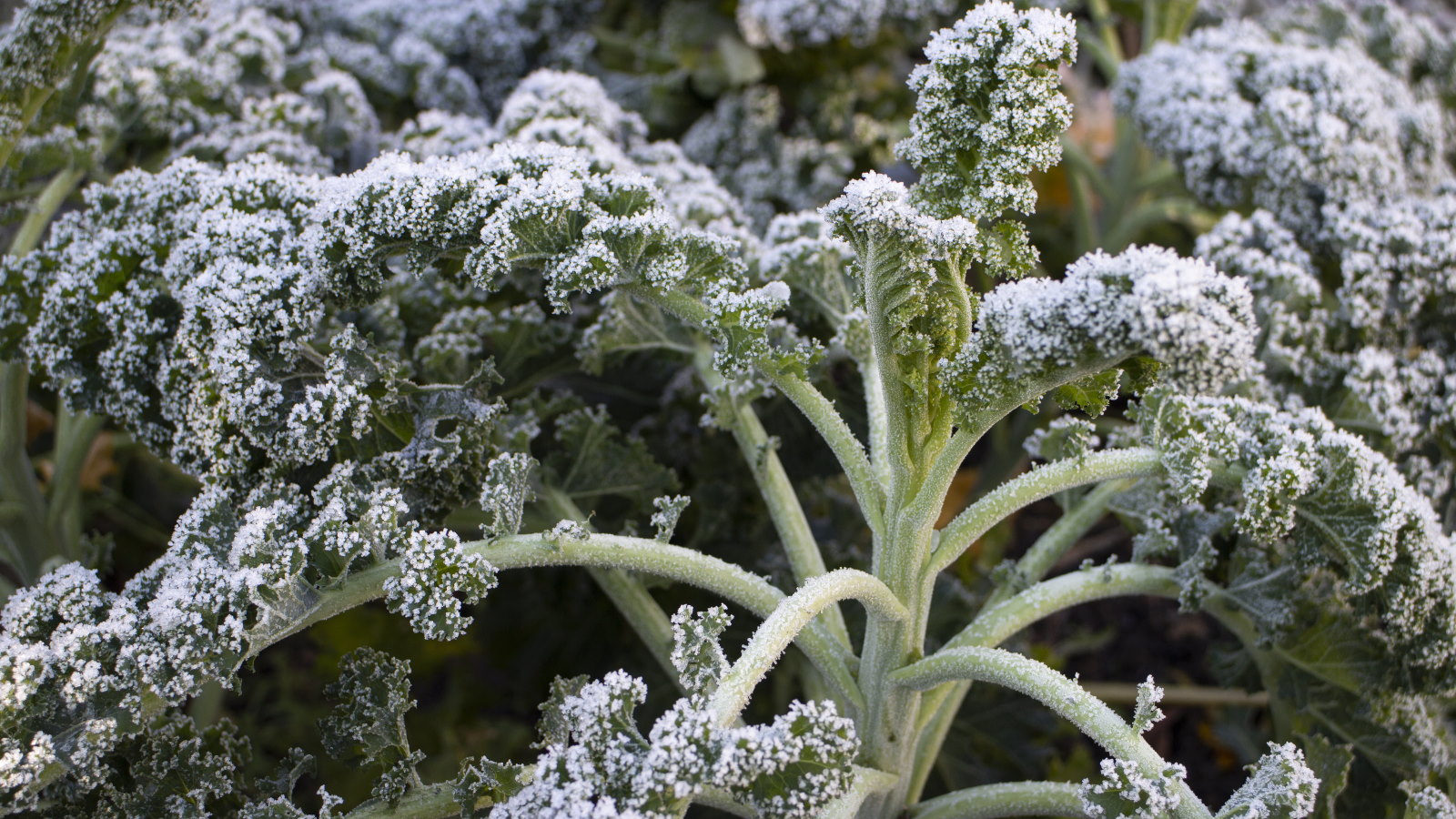
The cold weather does not mean the vegetable garden needs to be put to bed. There is a range of fantastic vegetables that can overwinter outdoors and provide delicious harvests throughout winter and into spring.
I grew and harvested vegetables 12 months a year for chefs. I could often be found out in the vegetable garden on a frosty winter’s morning picking vegetables to deliver to the kitchens for that evening’s plates.
When planning a kitchen garden, picking hardy crops to overwinter ensures your space is productive throughout the year. I still grow vegetables to overwinter on my allotment plot for homegrown harvests over the colder months. Based on my experience of growing year-round, here are some of my favorite vegetables to overwinter in kitchen gardens.
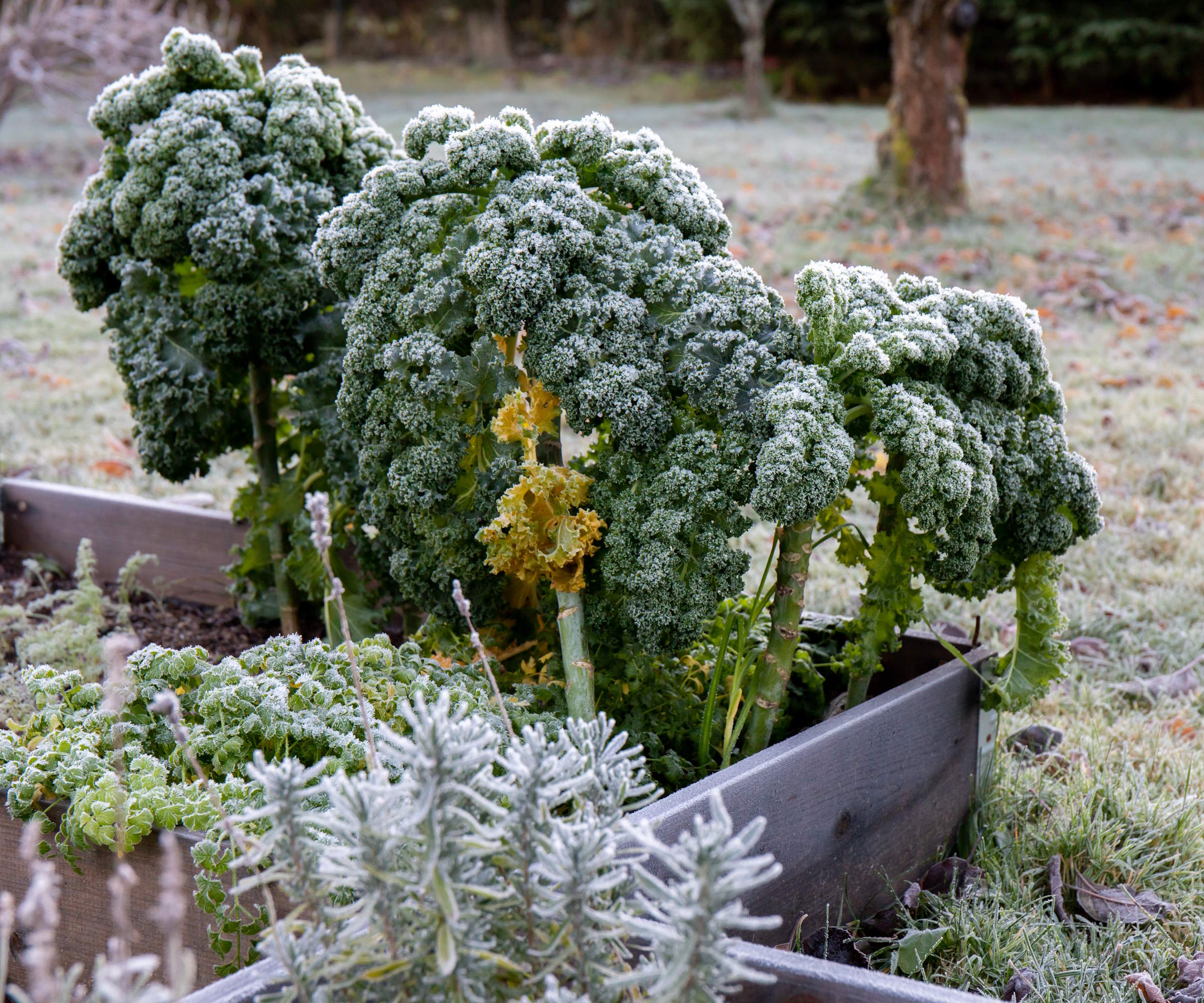
Hardy vegetables to overwinter without fuss
Choosing the right crops and protecting taller plants from strong winds are key to overwintering vegetables successfully. Vegetables will also need less watering and no feeding during the winter months. Here are 10 great vegetables to grow over winter:
1. Leeks
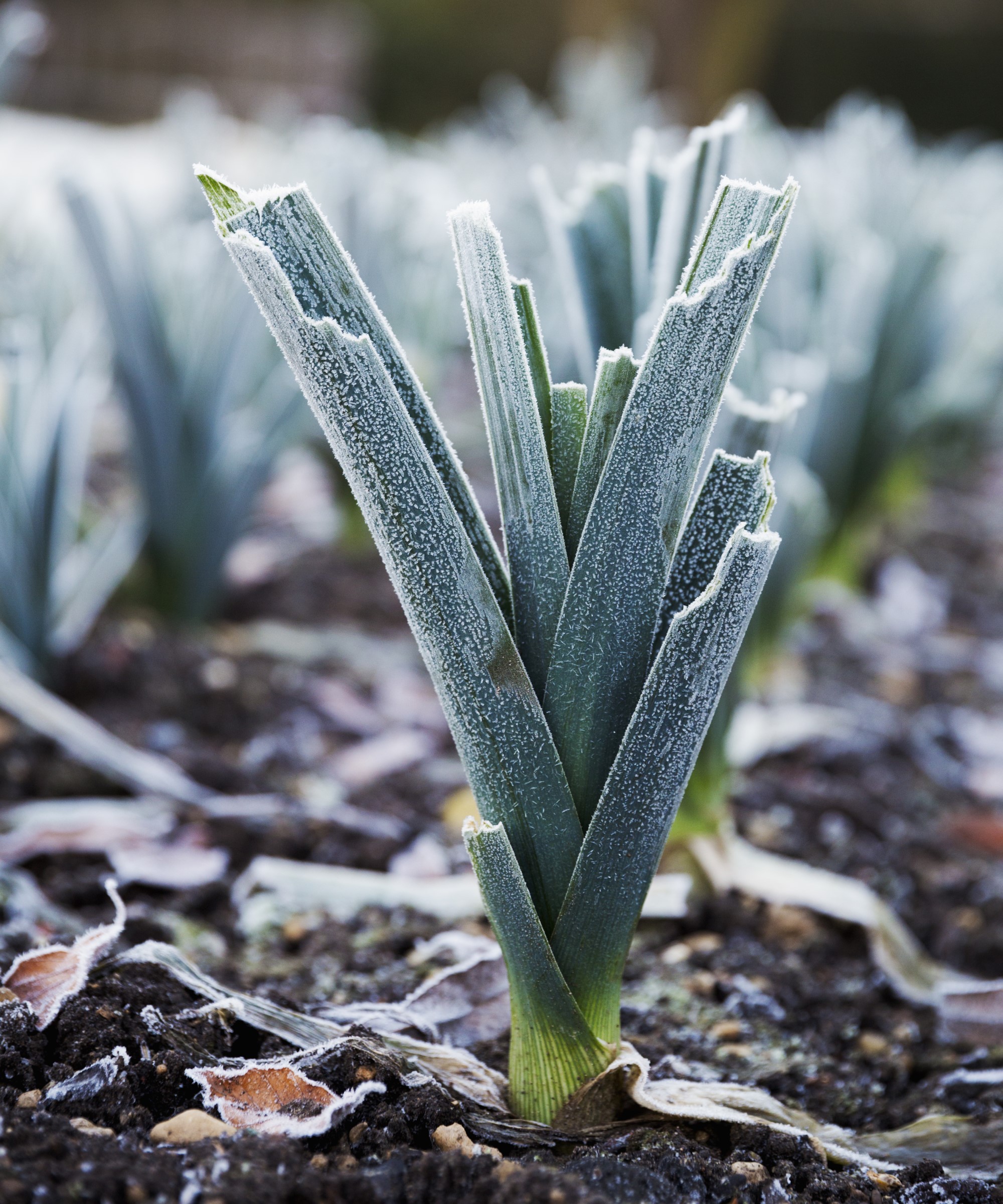
Knowing how to grow leeks means you have a great vegetable to overwinter for harvests through winter and into the following spring. Leeks mature over the summer and fall to be harvested as required throughout winter. Pick mid or late-season varieties of leeks to harvest in winter, as early types are not hardy and should be lifted in fall.
A reliable hardy leek I have grown for many years is ‘Musselburgh’. It produces short and thick stems and overwinters extremely well. You can get 'Giant Musselburgh' leeks seeds at True Leaf Market that are hardy in cold weather.
2. Cabbages
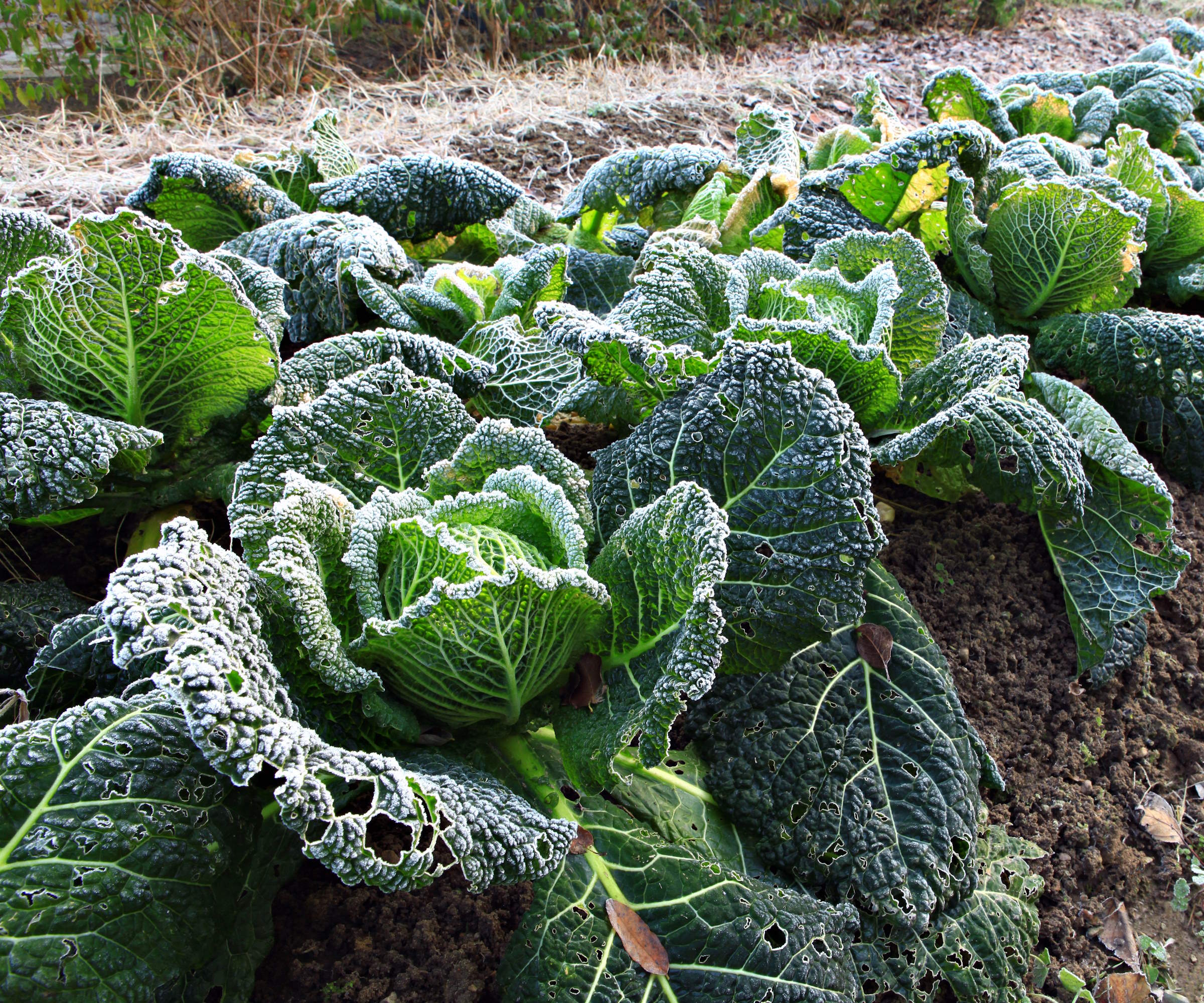
There are different types of cabbages to plant, grouped by when you harvest the cabbages. Two types of cabbage can overwinter in a vegetable garden.
Winter cabbages, as the name suggests, are the hardiest varieties and the time to harvest winter cabbages runs from November to February. Winter types include savoy cabbages with crinkled leaves that are the hardiest of all.
The other option for overwintering is to grow spring cabbages. These are planted in early to mid-fall and can remain outdoors to be harvested from mid-spring.
'Savoy Perfection' is a very hardy type of cabbage that can be grown in climate zones three through twelve. The plant produces heads approximately five to seven inches in diameter, enveloped in crinkled outer leaves.
3. Parsnips
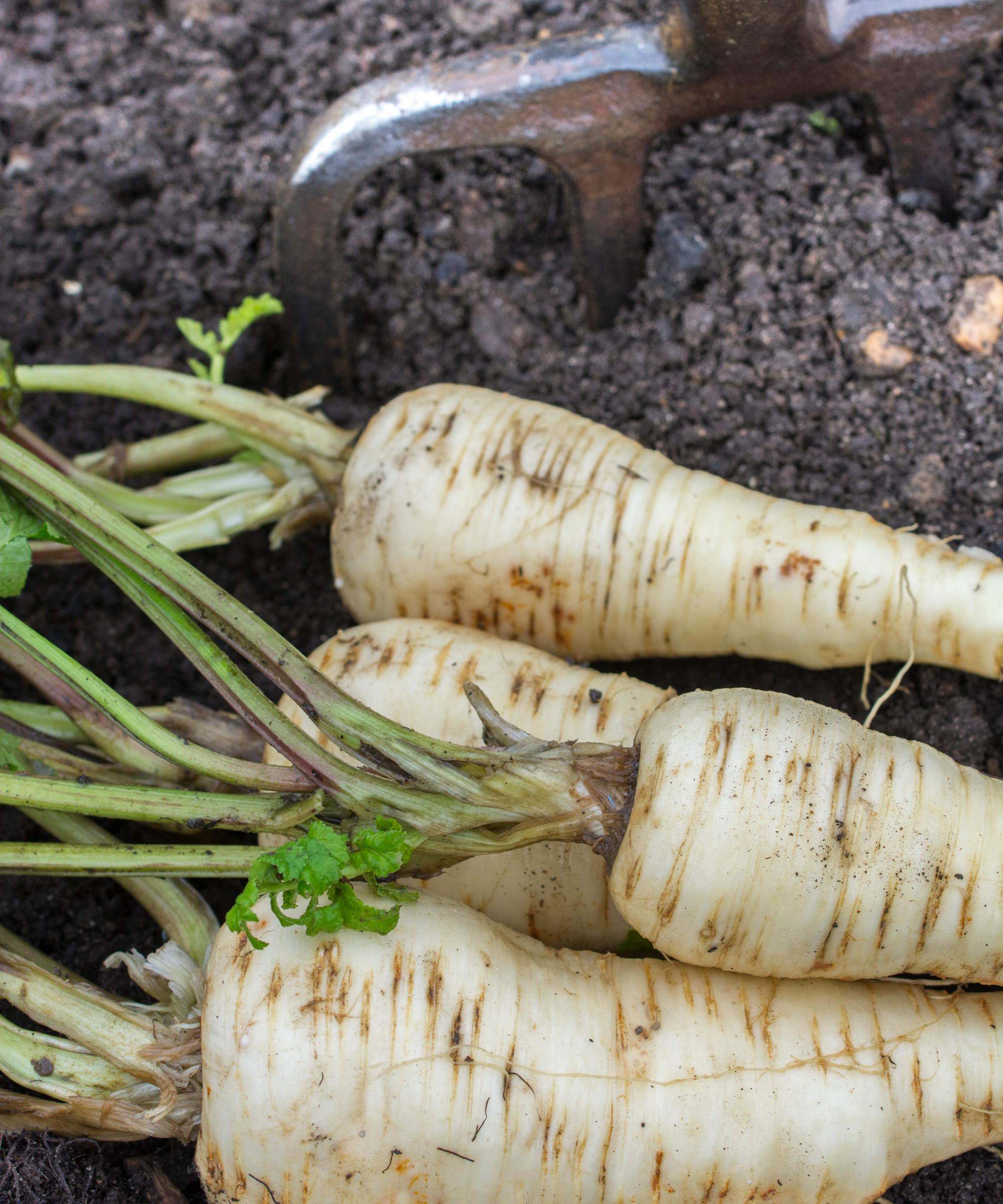
Growing parsnips requires patience, but it is worth the wait for the flavorful roots that can be lifted from the vegetable garden over winter.
They are not one of the easiest vegetables to grow and need to be directly sowed outdoors as they don’t respond well to transplanting. Sow seeds outdoors into well-prepared soil in mid to late spring - taking time to remove stones will prevent forking.
Wait until after the first frosts to harvest parsnips as the starches are converted to sugars, meaning sweeter roots. These hardy vegetables can be harvested as required throughout winter. Covering the parsnips with a layer of straw can stop soil freezing in winter and make harvesting easier.
'Hollow Crown' parsnips take 100 to 120 days to develop and produce sweet roots up to 15" long. The mature parsnips can be left in the ground over winter and harvested when needed.
4. Brussels sprouts
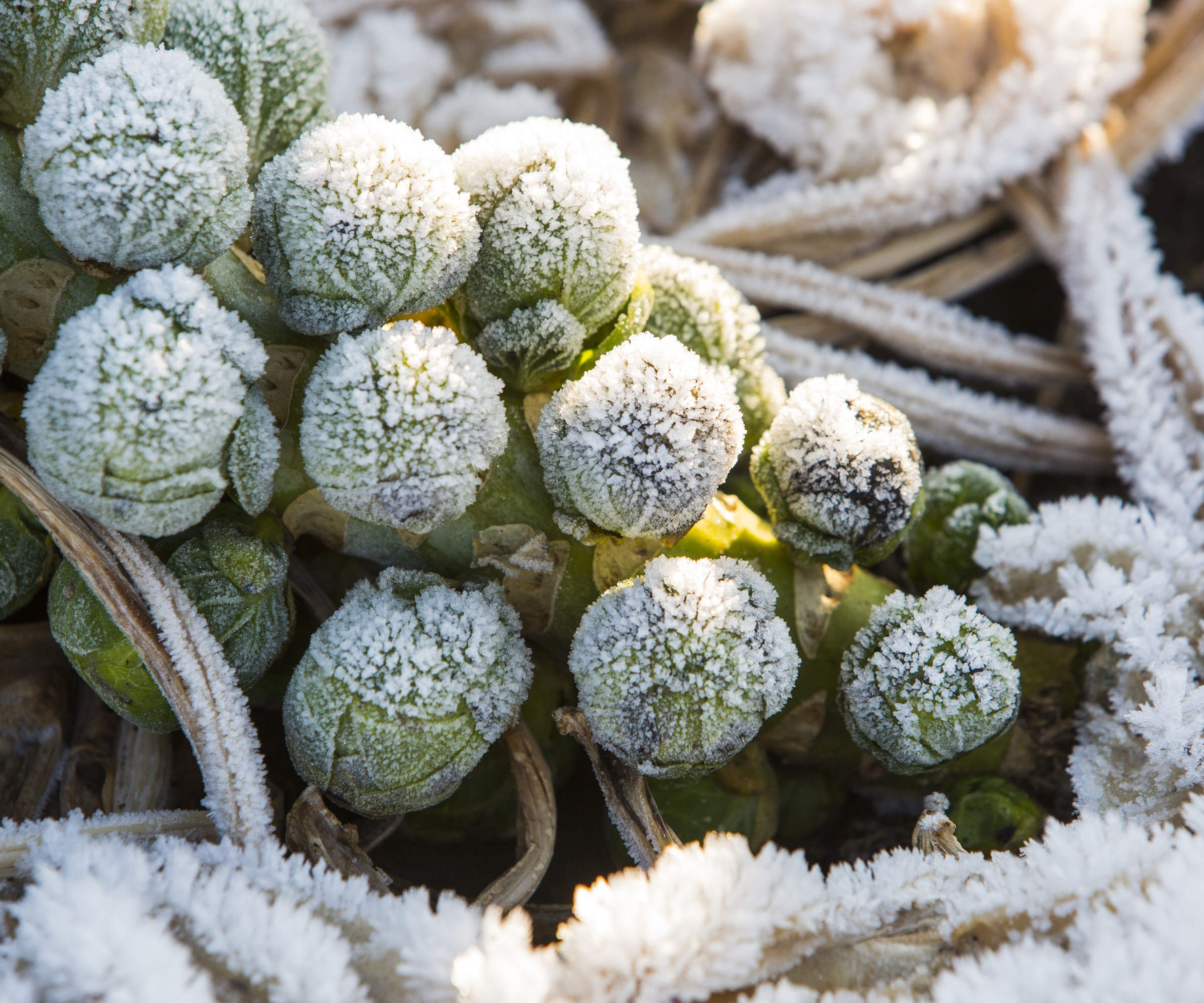
One of the vegetables most closely associated with Christmas, Brussels sprouts are incredibly hardy plants for overwintering.
When growing Brussels sprouts, you start them long before winter due to their long growing season. Sow seeds indoors in early spring to plant Brussels sprouts in the garden in mid to late spring. Late varieties are ready to harvest from November onwards and you can harvest Brussels sprouts through to early spring.
The plants will benefit from being staked to protect the tall stalks from winter damage, but the sprouts will also taste sweeter after a few frosts.
5. Jerusalem artichokes
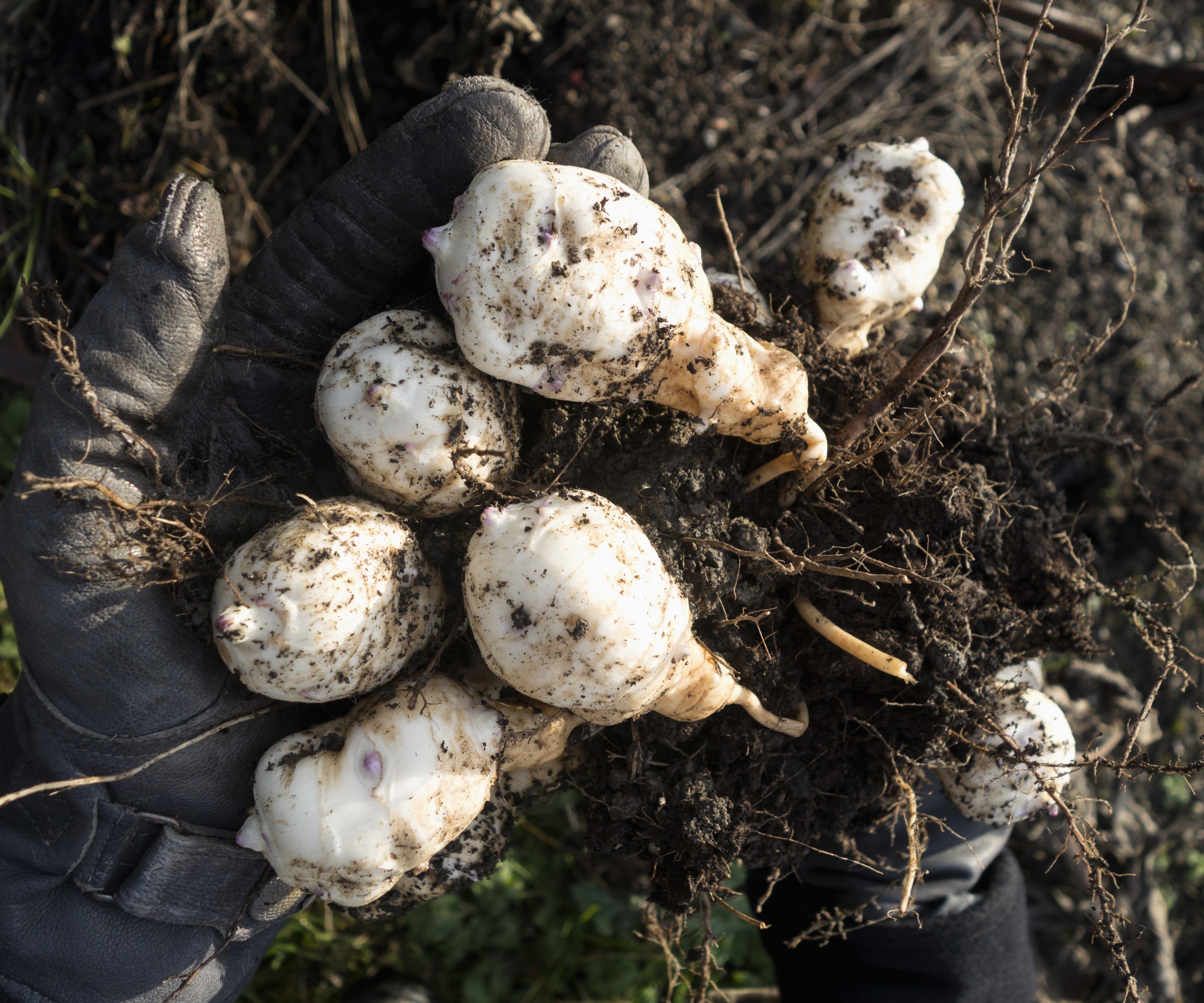
Also known as sunchokes, Jerusalem artichokes are very hardy crops grown for underground tubers that can be harvested throughout winter. I have spent many an hour on a freezing morning digging the earth during winter to harvest Jerusalem artichokes to deliver to restaurants.
Growing Jerusalem artichokes is very simple, often as easy as planting the vegetable in spring and doing little else, bar watering in long dry spells, then harvesting from late fall onwards. Take care when harvesting as any tubers left in the soil will sprout again next year.
6. Kale
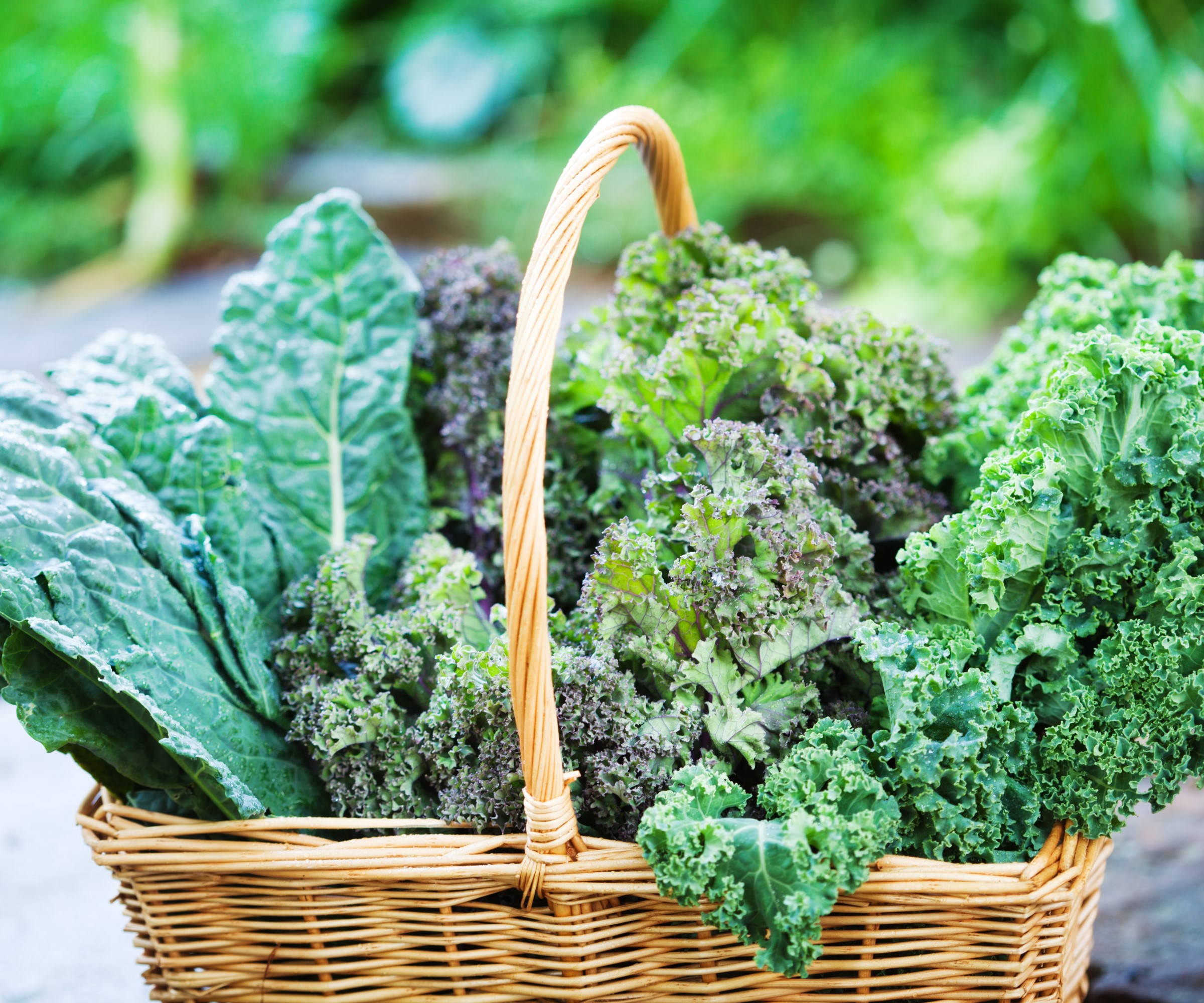
Kales are a wide group of hardy brassicas that can overwinter outdoors and be cropped through the winter months. The leaves come in different colors and shapes - from curly to strap-shaded - and the crop is rich in vitamins and minerals.
Kale is a cold-season crop that can be harvested from summer through into spring thanks to succession planting. By carefully removing individual leaves you can keep harvesting kale over a very long period. Just take care and don’t remove leaves in the top rosette, that would be a vegetable harvesting mistake that will stop the plant producing new growth.
I am a particular fan of Tuscan kale, also known as cavolo nero, lacinato kale, or dinosaur kale, which can overwinter in US hardiness zones 2-11.
An heirloom variety of kale that produces heavily crinkled blue-green loaded with flavor.
7. Garlic
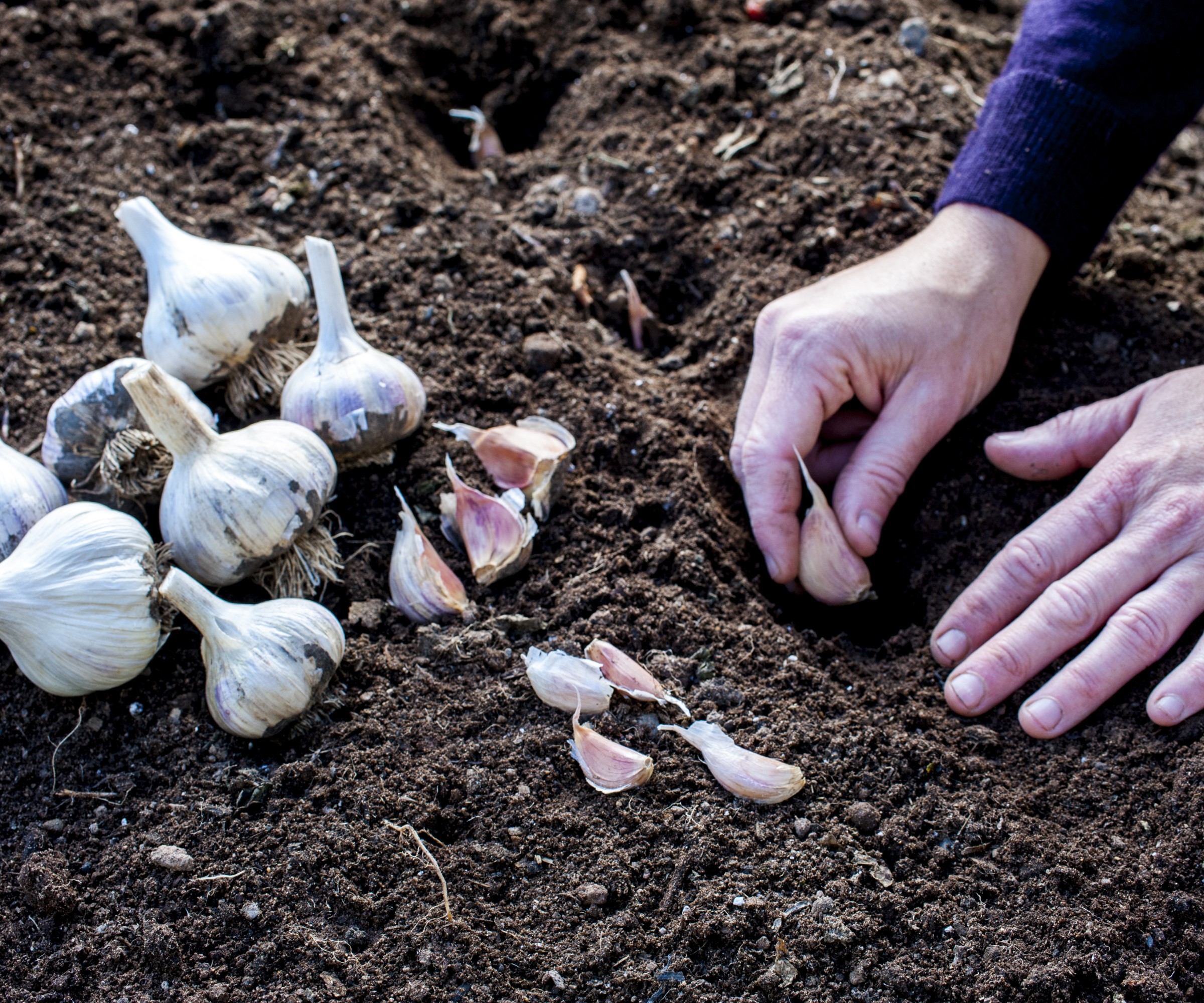
Garlic is a very simple vegetable to overwinter. Growing garlic typically starts in the fall when growers plant garlic into the vegetable garden to give the crop the long growing season it needs.
You can plant fall-planting varieties of hardneck and softneck garlic in October or November - the cloves will not mind the winter frosts and benefit being subjected to cold periods. Exposure to winter colds helps the crop to form a good bulb and help guarantee a good garlic harvest next summer.
See the range of garlic bulbs to plant available at Nature Hills.
8. Spinach
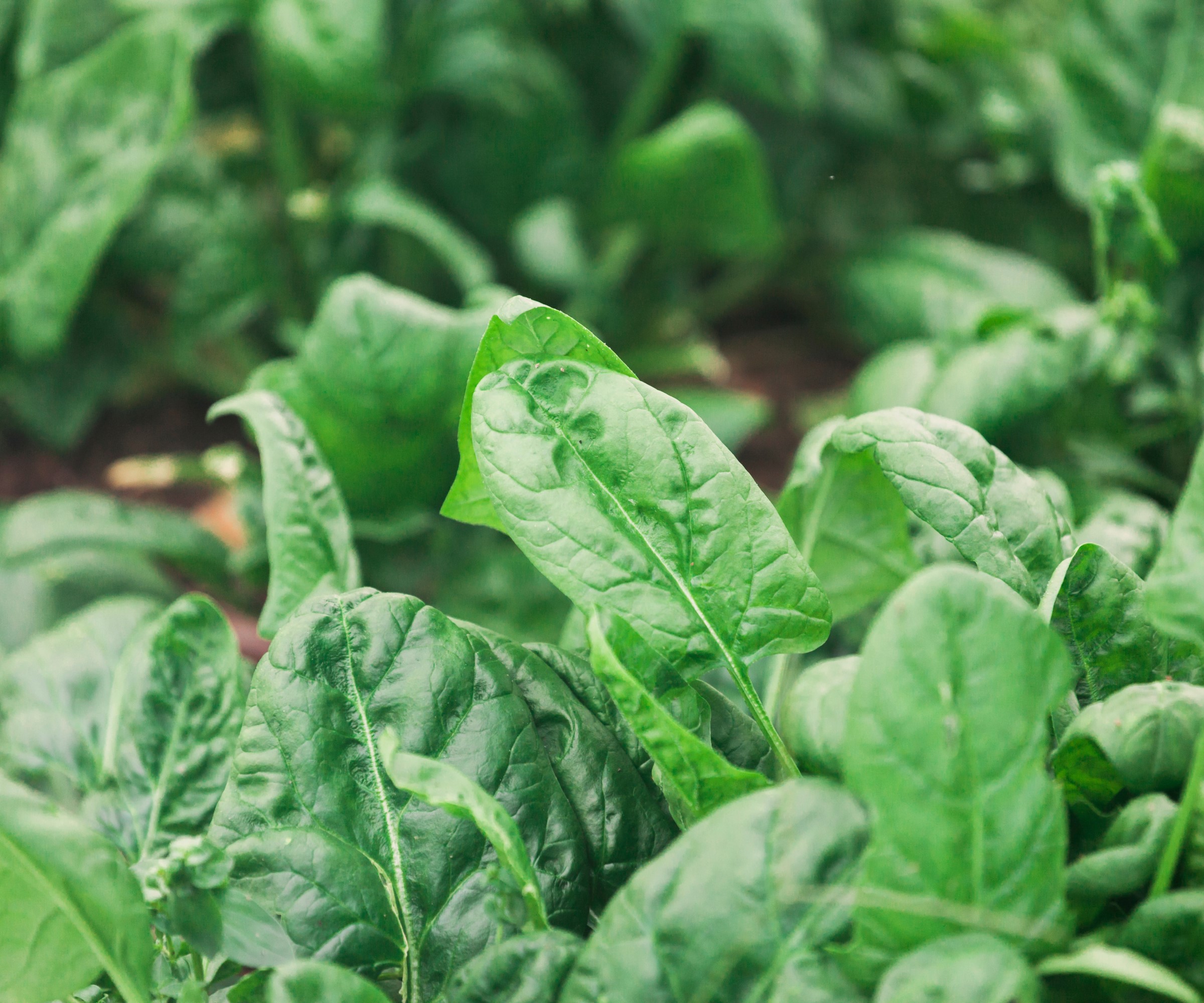
Spinach is a hugely productive cool weather crop packed with nutrients and fiber. The winter cultivars of spinach are hardy enough to overwinter outdoors, but can benefit with being covered with cloches or horticultural fleece, available at Amazon, in colder climates.
These hardy cultivars can give you a harvest of spinach leaves between October and April. Harvest individual spinach leaves for a long cropping season. See the range of spinach seeds available at True Leaf Market.
9. Fava beans
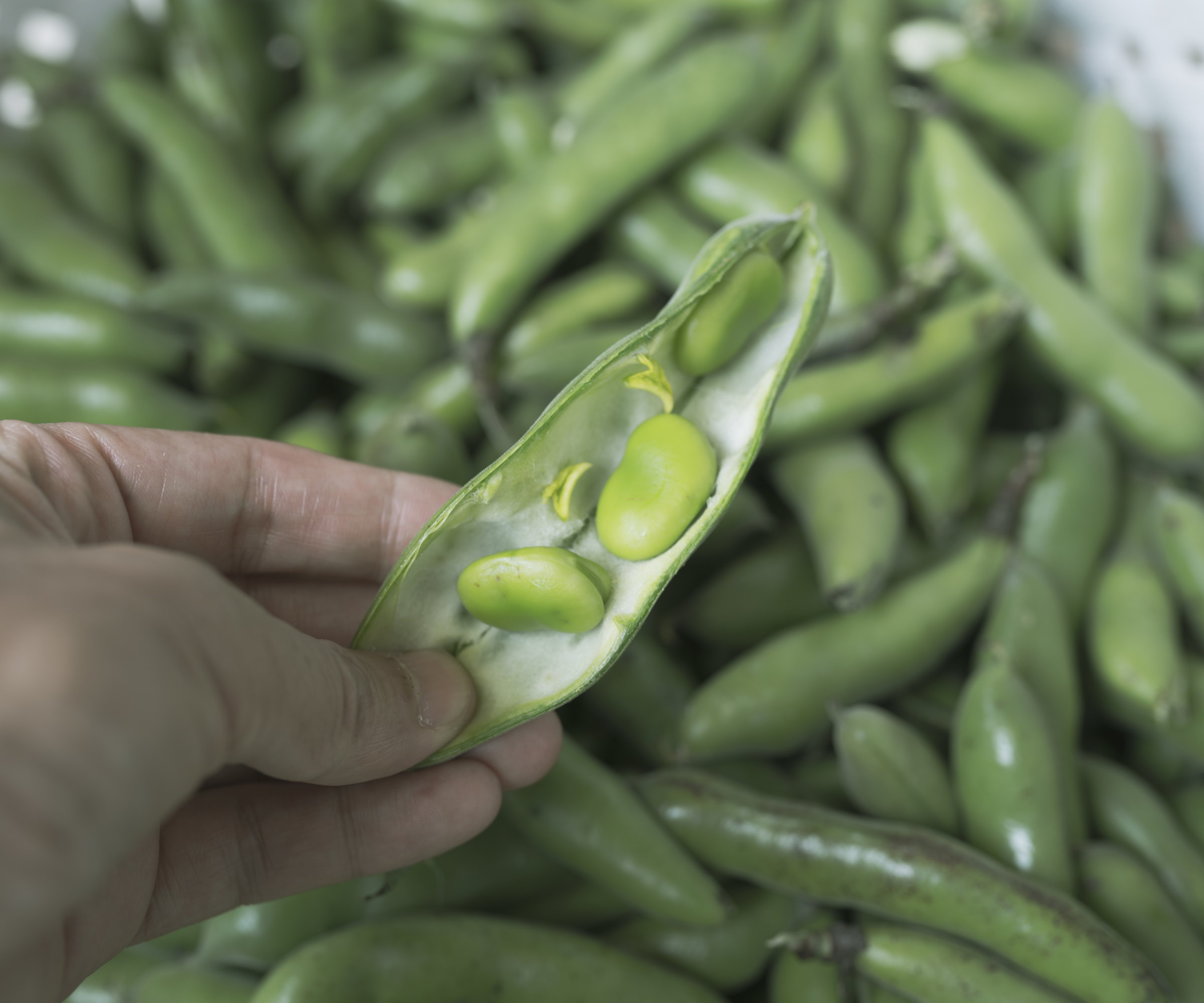
Growing fava beans over winter is a great way to get an earlier crop the following spring.
Fall sowings of hardy varieties of fava beans are suited to milder climates and soils that do not sit too wet over winter. Planting fava beans directly into the soil in the fall is recommended for anyone in US hardiness zones 5 and above, as cold snaps and wet winters can cause seeds to rot.
A highly recommended variety of fava beans for overwintering is the hardy ‘Aquadulce’ variety, available at Amazon, and you can expect a harvest of fava beans around mid-spring.
10. Corn salad
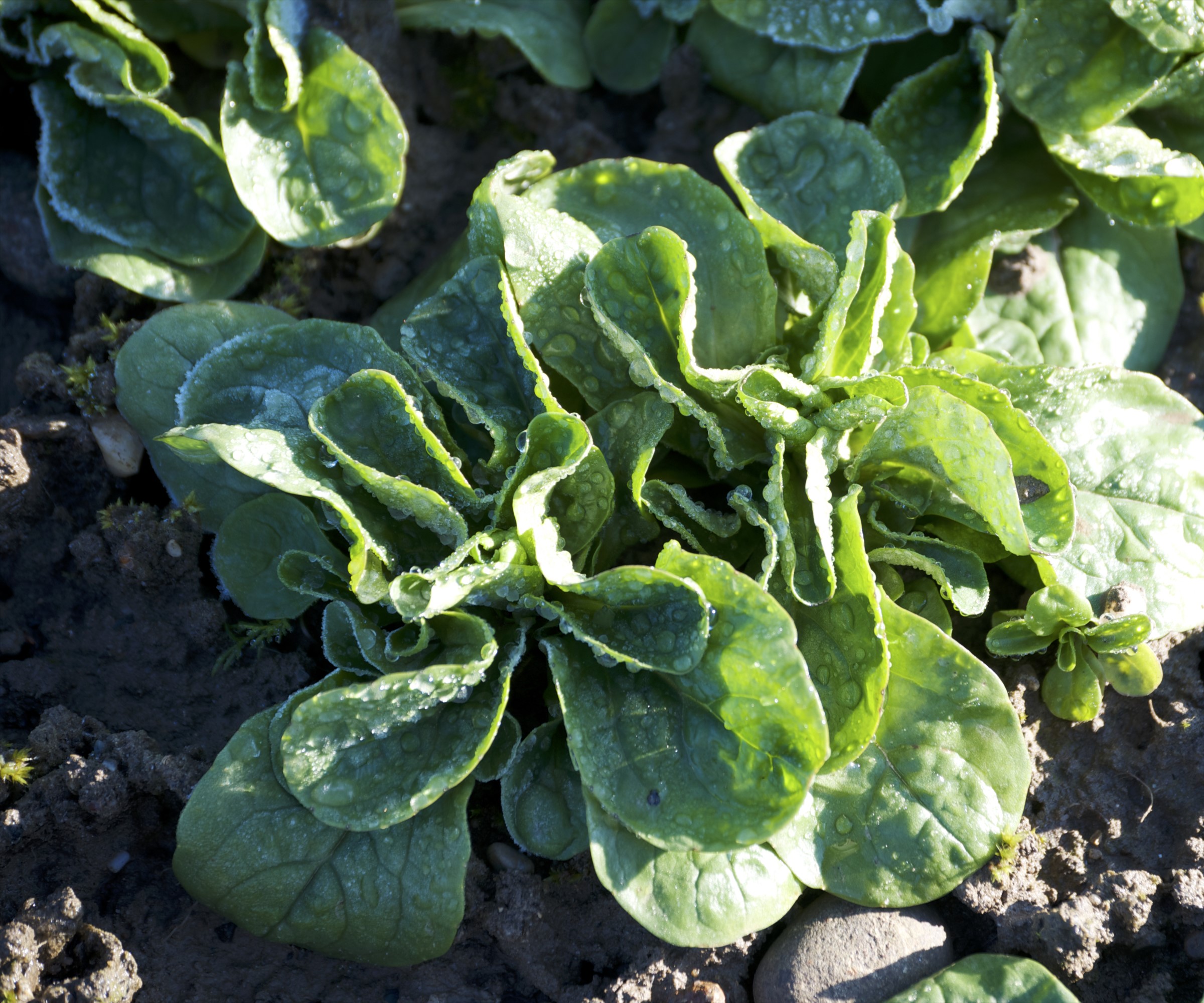
Corn salad, lamb’s lettuce, vit, or mache - whatever you call the crop it is a very hardy vegetable to overwinter and harvest throughout the colder months.
It is a low-growing and fast-growing vegetable that develops rosettes of nutty leaves that can withstand the cold and frosts of winter. Sowing seeds in late summer or early fall will mean plants to harvest from late fall onwards and you can either pick individual leaves as a cut-and-come-again crop or cut the entire rosette.
Vit is a French variety of corn salad that is great for cool weather picking and ideal for winter salads. It produces long, glossy green leaves with a tender, delicate nutty, minty flavor.
FAQs
Can you leave carrots in the ground over winter?
When you are growing carrots, they can be left in the ground during the winter in milder regions. The root crop will benefit from being mulched with a layer of straw to protect it from the worst of the winter frosts. Carrots being stored in the ground can be harvested throughout winter as required.
Can I leave potatoes in the ground over winter?
Growing potatoes can provide you with a long season of harvests through planting different types. After harvesting potatoes, they can remain good for many months when properly stored. It is not recommended to leave the crop in the ground throughout winter. This is especially the case if you live in colder climates or have heavy soil, as the tubers will start to rot in the wet and cold ground. Potatoes left in the ground over winter are also increasingly susceptible to damage from pests, such as slugs and wireworms.
An honorable mention on top of the ten vegetables above must go to Swiss chard. If you are growing Swiss chard it can be overwintered without protection down to 15 F, however, the crop may benefit from being covered with a cloche to prevent the leaves from getting damaged in tough winter weather conditions. With or without protection, I have previously managed to harvest Swiss chard leaves through winter and well into spring.







